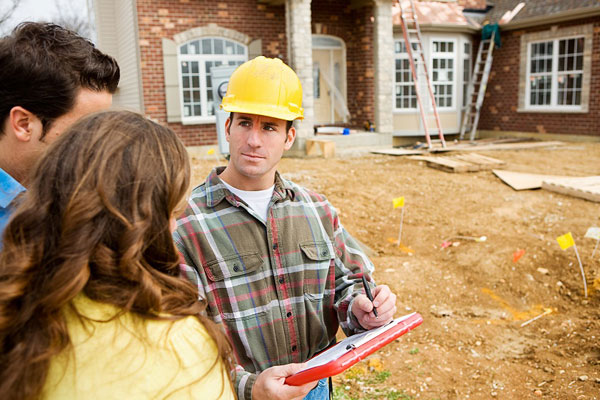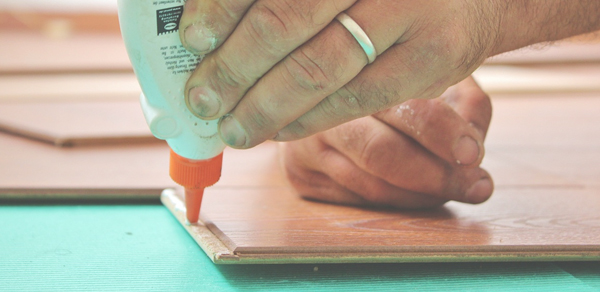DIY Fixes at Home

As we’re all well aware by now, buying property is one of the most expensive but most secure investments you can make, as long as you have building insurance or home insurance to cover it. However, you want to get the most out of an investment which, in this case, will largely mean building improvements around it like a swimming pool, garden or storage area. The idea, of course, is to be able to sell your home for the highest possible price in the event that you choose to move on.
The good news is that with a little advice from trained professionals you can find out exactly what improvements will bring you the highest returns for the lowest expenditure, and that’s exactly what Hippo.co.za decided to look into. We spoke to local DIY experts, construction companies and estate agency representatives to uncover a solid game plan to develop your property at a minimum expense.
Home-Dzine.co.za’s Janice Anderssen
What advice would you give the average homeowner who wants to start a DIY project?
If you have no prior knowledge of working with power tools it is always a good idea to attend a workshop that offers skills training on using various tools, as well as tips and techniques to do a variety of projects. There are organisations such as www.DIY-Divas.co.za that offer comprehensive DIY workshops on a wide range of topics, or do your research on the Internet.
Should we hire someone to help us so that we can learn from an expert?
If you are hiring an expert to do a particular job it’s always a good idea to watch how someone tackles a project. Not just from the point of view of gaining valuable information, but also to be informed should you wish to repeat the project or do touch ups and repairs later on.
What are the best resources to use if we want to ensure that we stay both hands-on and up-to-date with the DIY elements of my home?
Even as a DIY enthusiast that does DIY every day, I can honestly say that I still have much to learn. New tools and more effective techniques are always being introduced, so continue to grow your knowledge by attending workshops or browsing the Internet for new ideas.

Redfish’s Theunis Hanekom
In terms of reasonable DIY projects that a home owner could take on themselves to enhance property value, what would you recommend?
The easiest and most cost effective will be the garden - a well maintained garden can make a huge difference to the value of your property, especially when you are planning to sell it.
Is there a great resource out there for cost effective self-training?
YouTube is a fantastic learning tool but don’t be afraid to also ask your local hardware store and, of course, local contractor if you have questions.
What advice would you give to homeowners so that their house doesn't end up needing extensive renovations?
It is recommended that you spend 1% of the value of your property per annum on maintenance to keep it in tip top nick.
When would you recommend a DIY enthusiast think twice before tackling a project?
Taking chances on cost saving without knowing the legal parameters to work in or when it comes to safety.

Rose Eedes Properties’ Rose Eedes
What features could a homeowner add to their property which would provide the best increase to its value?
As many people see the kitchen as the heart of a home, upgrades like countertops, cupboards, a new sink, coat of paint etc. can account for a recoup of up to 70% when the house is sold. The same can be said for the bathroom. Any security features such as alarm, electric fence, automated gates, trellidors, etc. - could be a cost-effective way to boost the value of a property.
Are there any added features which would require legal compliance or checks by government agencies?
Any additional building extensions or changing the façade of a house requires council approval and building plans and sometimes consent from neighbours. Anything else considered a ‘Movable Item’ e.g. a wendy house, fountain or spa bath could often be installed without hassles or red tape.
In terms of rentals, how should a lessee proceed if they wanted to make structural changes to the property, and what typically happens when they accidentally cause damage if doing it themselves?
In most normal cases, this is not encouraged by the owner of the property unless it will benefit the aesthetics or future rent ability factor of the house in question. If the owner agrees to some kind of structural change (i.e. the tenant wants to remove an interior wall), only a reputable contractor should be used, with credentials and references to be given and quotes to be done. If the tenant personally made a change that was not approved or not up to standard, they would be liable to put something back the way it was.
What are the most common points of consideration before a seasoned buyer purchases a new house?
Most important would be the structural integrity of the house. No one wants to buy a house that has cracks or damp and mould issues. Also, houses with malodour, bug infestations, old kitchens/bathrooms are not big selling points. Illegal structures without plans are a negative. Most buyers will look for north-facing properties with lots of natural light and, where possible, value for money per m2 of land/property purchased.

Tétris South Africa’s Emma Luyt
What would you consider a DIY home maintenance project which is too big to undertake alone?
When my husband and I moved into our new home, all the walls were bagged so I decided to take on the plaster work myself – it didn’t end well. Luckily we are still married. I’d definitely recommend getting in professionals for any wet works and base build construction jobs.
Any advice for those looking to increase their property value?
Financially, home improvements will always pay off in the long-run. There’s a rule of thumb, if you are going to live in the house for less than five years, make improvements that you know will increase the resale value. If you will be living in your home for more than five years, create an environment that appeals to your personal taste and that you will enjoy living in – own your own space!
Lovilee’s Karen Kelly
What’s your method for keeping your skills modern?
I like watching the home channel on DSTV. There are also various exhibitions and shows that one can attend throughout the year. Easy DIY is also a magazine that I like to buy from time to time and browsing on-line publicationss and Pinterest can provide a lot of inspiration. My dad is also a very good source of information and has assisted with plenty a DIY project I have attempted in the past.
What would you consider an easy or difficult DIY project?
For a room renovation (Easy project)
- Purchase the paint
- Purchase new door handles
- Purchase soft furnishings
- Get a contractor to re-do the flooring if needed
- Paint the room, change the door handles and decorate to taste!
For a bathroom or kitchen renovation (Difficult)
- Choose the tiles and fixtures
- Purchase paint if needed
- Get a contractor to complete the project or get a plumber and a tiler involved.
- Paint the room and decorate to taste!

Our top take away tips are that you use those budding DIY skills to increase your property’s value and create a space which you can be proud to call home. Be sure to keep up to date with the latest house and home-related trends, look out for tips and advice online and tune into house and home TV channels. Don't hesitate to call DIY professionals in, if and when you get stuck – they could advise and open up those channels of thinking. Many areas such as bathrooms are often over looked or undervalued in as far as how they may increase your house's market value. DIY experts and plumbing and bathroom advisors may be of assistance in guiding the various purchase decisions required, in order to get your home into tip top shape.
And there we have it, several thoughts to keep in mind if you’re ready to start optimising your property for financial returns without breaking the bank. Speaking of breaking though, remember to check your buildings and home insurance policies before you put hammer to nail, and clearly separate potential DIY jobs from professional ones.
Hippo Blog Categories

































